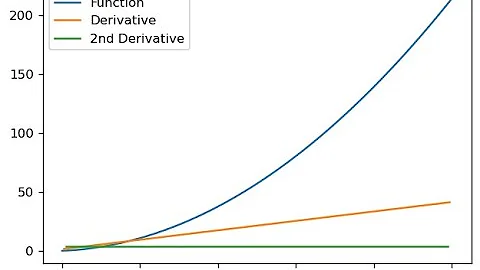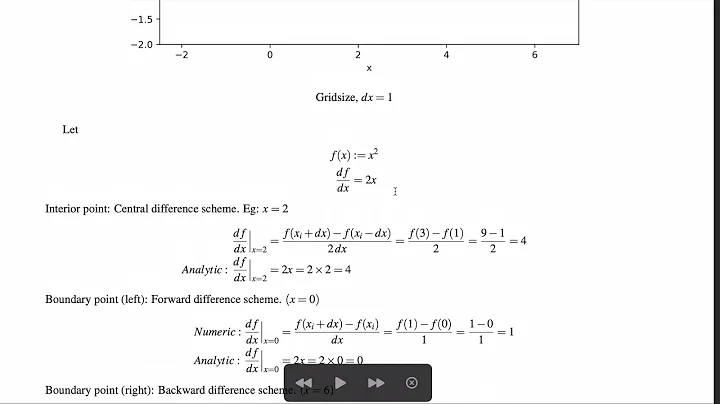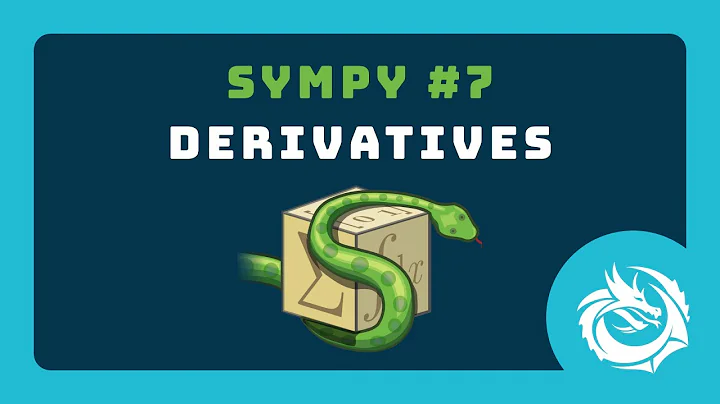scipy.misc.derivative for multiple argument function
17,821
Solution 1
I would write a simple wrapper, something along the lines of
def partial_derivative(func, var=0, point=[]):
args = point[:]
def wraps(x):
args[var] = x
return func(*args)
return derivative(wraps, point[var], dx = 1e-6)
Demo:
>>> partial_derivative(foo, 0, [3,1])
6.0000000008386678
>>> partial_derivative(foo, 1, [3,1])
2.9999999995311555
Solution 2
Yes, it is implemented in sympy. Demo:
>>> from sympy import symbols, diff
>>> x, y = symbols('x y', real=True)
>>> diff( x**2 + y**3, y)
3*y**2
>>> diff( x**2 + y**3, y).subs({x:3, y:1})
3
Related videos on Youtube
Comments
-
tchakravarty over 3 years
It is straightforward to compute the partial derivatives of a function at a point with respect to the first argument using the SciPy function
scipy.misc.derivative. Here is an example:def foo(x, y): return(x**2 + y**3) from scipy.misc import derivative derivative(foo, 1, dx = 1e-6, args = (3, ))But how would I go about taking the derivative of the function
foowith respect to the second argument? One way I can think of is to generate a lambda function that rejigs the arguments around, but that can quickly get cumbersome.Also, is there a way to generate an array of partial derivatives with respect to some or all of the arguments of a function?
-
laszlopanaflex over 5 yearswhat is the role of the args in the derivative() function?
-
-
tchakravarty over 10 yearsThat's nice, and I can put them together as a vector of partial derivatives, but would have thought that between SciPy and SymPy, one of them would implement this. What I was looking for is the functionality provided by the R
derivfunction. -
alko over 10 years@fgnu not well acquinted with R, can you link to docs for
deriv -
tchakravarty over 10 yearsHere you go. To quote the manual "It returns a call for computing the expr and its (partial) derivatives, simultaneously."







